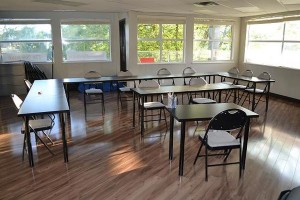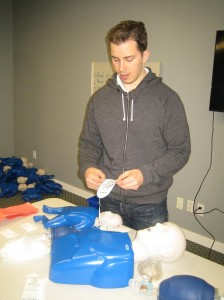PALS training Overview

Pediatric Advanced Life Support (PALS) training is one of our most popular courses, because it focuses on the management of infants and toddlers – pediatric patients. Managing injuries and conditions in children is much more difficult than handling adults, because children’s bodies and organ systems are immature and weaker. First aid and CPR are given using the same concepts but there are changes to the techniques made accounting for the physical and mental differences between adults and children.
PALS program: The PALS program is a two-day course that is completed over several sessions, in a total of 14 hours. Re-certification is also available, running for either 6 hours and 20 minutes or 8 hours and 20 minutes, depending on what stations or lessons you choose to take.
Management of Pulseless Arrest
Ascertaining cardiac arrest is the first step to correct and timely management. Pulseless arrest is characterized by loss consciousness, irregular or absent respiration, and unresponsive. As soon as the child is found to be without a pulse, with any of these three symptoms, start CPR immediately after calling for emergency help.

When giving CPR, emphasis should be placed on high-quality chest compressions with adequate depth and a rate of at least 100 a minute, minimizing interruptions. However, unlike adult CPR which focuses on compressions, ventilations are just as important in PALS. In children, cardiac arrest is usually caused by a respiratory problem – this is why pulseless arrest in children is called asphyxial arrest and ventilations are as important as compressions.
Medication is also involved in pediatric management, which drugs used to improve cardiac output and cardiac contractility. Common medications used for cardiac arrest are epinephrine, dopamine, dobutamine, norepinephrine, sodium nitroprusside, and inodilators. Focus on medication administration and dosage is quite important for pediatric management because adult dosages can be quite toxic to children.
Other programs
We also offer other courses at our providers, for basic and advanced CPR and first aid. These courses range between 4 hours and 16 hours.
- Basic CPR/AED – general public program, 4 hours
- Basic CPR/AED C – HCP program, 4.5 hours
- Basic Life Support for HCPs – HCP program (one and two-rescuer CPR), 4.5 hours (re-certification – 4 hours)
- Advanced Cardiac Life Support (advanced) – 16 hours (re-certification – 5 hours)
Re-certification is available for the the last two courses on the list, as well as PALS. For the other two courses, the rescuer has to retake the program to get a new CPR/first certificate.
Locations
- Los Angeles, CA
- San Francisco, CA
- Las Vegas, NV
- Honolulu, HI
- Seattle, WA
- Portland, OR
All of our locations offer the same programs, at the same rates. There are different schedules, however, because we tailor our schedules to the needs of our trainees. We sometimes open classes during the evenings or weekends in order to accommodate all the trainees who want to enroll in a PALS program with us.
